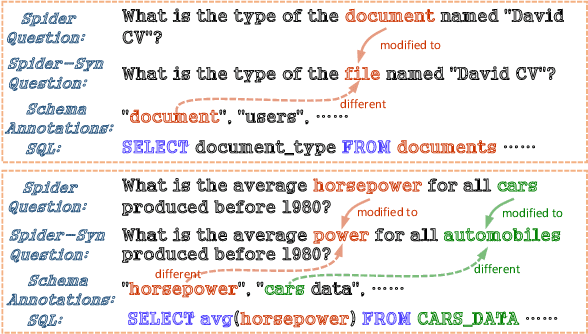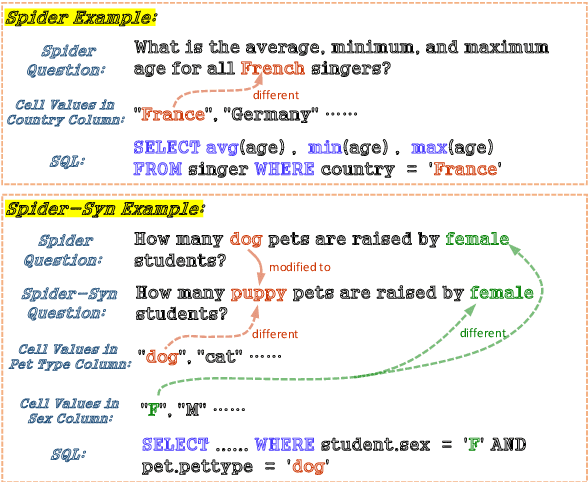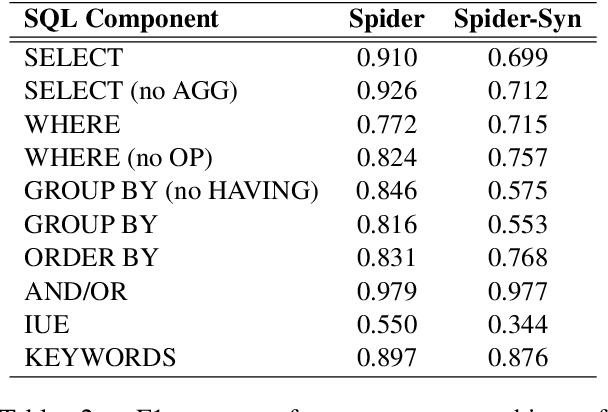Pengsheng Huang
Towards Robustness of Text-to-SQL Models against Synonym Substitution
Jun 19, 2021



Abstract:Recently, there has been significant progress in studying neural networks to translate text descriptions into SQL queries. Despite achieving good performance on some public benchmarks, existing text-to-SQL models typically rely on the lexical matching between words in natural language (NL) questions and tokens in table schemas, which may render the models vulnerable to attacks that break the schema linking mechanism. In this work, we investigate the robustness of text-to-SQL models to synonym substitution. In particular, we introduce Spider-Syn, a human-curated dataset based on the Spider benchmark for text-to-SQL translation. NL questions in Spider-Syn are modified from Spider, by replacing their schema-related words with manually selected synonyms that reflect real-world question paraphrases. We observe that the accuracy dramatically drops by eliminating such explicit correspondence between NL questions and table schemas, even if the synonyms are not adversarially selected to conduct worst-case adversarial attacks. Finally, we present two categories of approaches to improve the model robustness. The first category of approaches utilizes additional synonym annotations for table schemas by modifying the model input, while the second category is based on adversarial training. We demonstrate that both categories of approaches significantly outperform their counterparts without the defense, and the first category of approaches are more effective.
 Add to Chrome
Add to Chrome Add to Firefox
Add to Firefox Add to Edge
Add to Edge